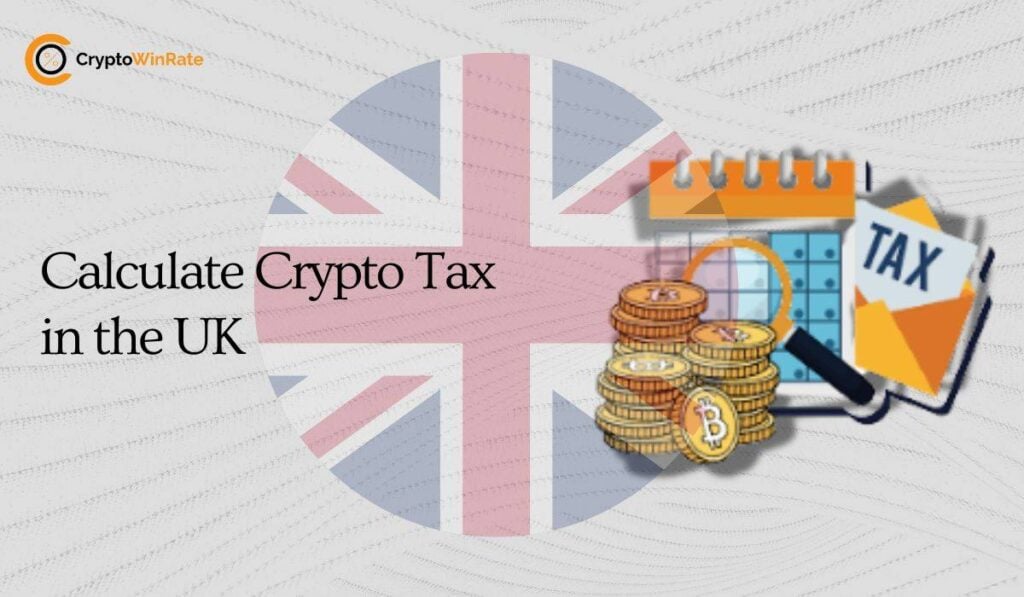- Profits from cryptocurrency are usually subject to Capital Gains Tax (CGT), while earnings from activities like mining or getting paid in crypto may fall under income tax.
- You might be eligible for certain tax reliefs, like when you hold crypto for a while, gift it to a spouse, or receive airdrops without providing any service in return.
- Keeping clear, detailed records of your crypto transactions, especially gains and disposals, is key to staying compliant with HMRC rules.
- Getting professional financial advice can make a big difference, helping you navigate tax requirements and optimise your strategy for crypto investments and activities.
Cryptocurrency being a common means for digital payments, is being recognized as a legitimate asset across the world, including the UK. People are buying it, selling it, using it to earn money, or even getting paid in it. But like any other asset, the crypto income and ownership is liable to tax. But many people are unsure about how to pay tax on their crypto. This article will help you find what the UK tax office (HMRC) expects in terms of tax, from your crypto holdings, in the simplest way possible.
What Does the UK Think of Cryptocurrency?
The UK tax office treats crypto more like an asset or property than a currency. That means if you sell or earn crypto, you may need to pay tax, just like if you sold a house or earned a salary.
There are two main types of tax you might have to pay:
- Capital Gains Tax (CGT) – calculated on the sale or swap of your crypto
- Income Tax – on the gain you earned on crypto through work or rewards.
Capital Gains Tax (CGT)
Capital gain tax is paid when you make a profit from selling your crypto. This is applicable for when:
- You sell crypto for pounds
- You swap one crypto for another (like Bitcoin to Ethereum) and earn a gain
- You use crypto for online or offline purchase
- You transfer or give crypto to someone else excluding your blood relations or your spouse/ civil Partner.
- You pay 10% tax if you’re a basic-rate taxpayer
- You pay 20% tax if you’re a higher-rate taxpayer
How Capital Gains Tax is Calculated in the UK
To calculate your profit, take the amount you made from selling the crypto, subtract what you paid to buy it, and subtract any transaction fees.
Example: Crypto Capital Gains
Buy Price: £8,000
Transaction Fees: £500
Sale Price: £15,000
Gain: £15,000 – £8,000 – £500 = £6,500
Annual CGT Allowance: £3,000
Taxable Gain: £6,500 – £3,000 = £3,500
Tax Owed (20%): 20% of £3,500 = £700
Special HMRC Rules for Buying and Selling
The UK uses rules to work out which crypto you sold. They are:
- If you bought crypto on the same day, those are matched first.
- Then, crypto was bought in the 30 days after the sale.
- Everything else goes into a pool and is averaged.
This makes it important to keep clear records.
Income Tax
Sometimes crypto is treated as income. This usually happens when:
- You get paid in crypto for work
- You earn crypto from mining or staking
- You get crypto as a reward or airdrop for doing something
In these cases, the value of the crypto (in pounds) when you receive it is counted as income. You pay Income Tax on it just like your salary. You may also need to pay National Insurance.
If you get free crypto without doing anything in return, like some airdrops, it might be counted as a gift instead and taxed under Capital Gains Tax if you later sell it.
How Income Tax is Calculated in the UK
To calculate your taxable crypto income, simply total the amount you received from activities like staking rewards or mining, as the full amount is reported as income on your tax return.
Example: How is Crypto Income Taxed?
Staking Rewards Received: £2,000
Taxable Income Recognized: £2,000
Tax Treatment of Various Crypto Transactions
Here’s how different types of cryptocurrency transactions are taxed under UK regulations.
| Tax Event | Tax Free | Capital Gains Tax | Income Tax | Tax Deductible |
|---|---|---|---|---|
| Holding cryptocurrency | ✓ | |||
| Buying cryptocurrency | ✓ | |||
| Selling cryptocurrency | ✓ | |||
| Crypto-to-crypto trades | ✓ | |||
| Cryptocurrency losses | ✓ | |||
| Crypto earned from a job | ✓ | |||
| Cryptocurrency mining | ✓ | |||
| Cryptocurrency staking | ✓ | |||
| Airdrops | ✓ | |||
| Transaction & gas fees | ✓ |
Bottom Line
Crypto might feel new and exciting, but the tax rules still apply. Whether you’re buying, selling, earning, or gifting crypto, it’s important to understand what taxes you might owe. By keeping clear records, learning the basic rules, and asking for help when needed, you can stay on the right side of the law and avoid surprises.
FAQs
1. What Records Should You Keep?
You must keep detailed records of all your crypto activity. This includes:
- Date of each transaction
- What you did (buy, sell, swap, etc.)
- Amount of crypto and its value in pounds
- Any fees you paid
- Wallet and exchange used
2. What Happens with Losses or Gifts?
If you lose money on crypto, you can report that loss and use it to reduce your future tax bills. But you must tell HMRC about it. If you give crypto to your spouse or civil partner, there is usually no tax to pay. But if you give it to anyone else, it counts as a sale and you might owe CGT based on its value at the time. Crypto is also part of your estate, so if you pass away, your crypto may be subject to inheritance tax.
3. How to Save on Tax in the UK (Legally)?
You can plan ahead to reduce your tax:
- Share crypto with your spouse to use both your £3,000 CGT allowances
- Sell at the right time to stay in the lower tax band
- Sell assets that lost value to offset your gains
You can’t put crypto in an ISA or pension to avoid tax in the UK right now.
4. What About DeFi, NFTs, and Other Complicated Things, are they also taxed in UK?
Things like DeFi (decentralised finance), NFTs (digital art or assets), and earning from crypto lending are more complex. HMRC hasn’t given full guidance yet, but in most cases, swapping tokens, earning rewards, or selling NFTs will count as taxable events. Because it’s not always clear, it’s smart to keep good records and talk to a tax expert if you’re unsure.
5. Can HMRC Track My Cryptocurrency?
A: Yes, HMRC can track your cryptocurrency. In recent years, they’ve ramped up efforts to prevent crypto tax evasion by obtaining customer data from major exchanges and sending reminder letters; often called “nudge” letters, to investors. These measures encourage taxpayers to accurately report and pay both capital gains and income taxes related to their crypto activities.















